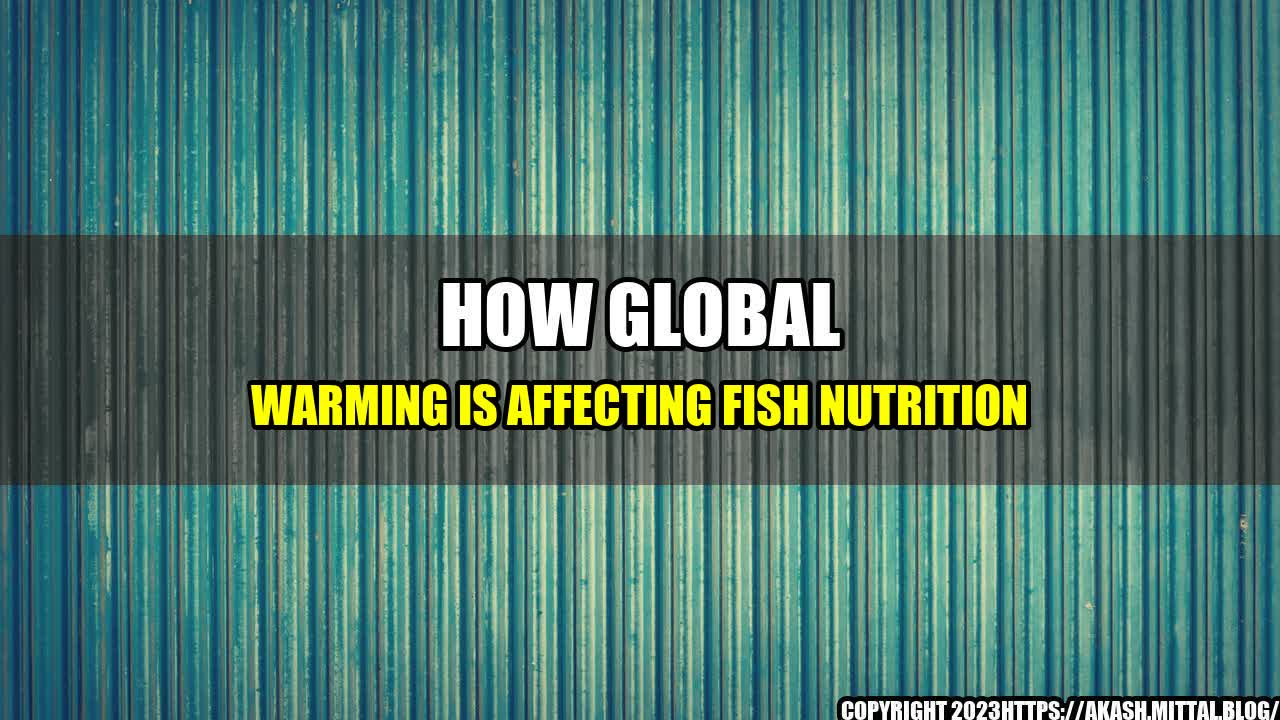Have you ever wondered why the fish you catch doesn't taste as good as it used to be? It turns out that global warming could be one of the reasons.
Researchers have found that as the Earth's temperature increases, so do the levels of mercury and other toxins in the ocean. These toxins get absorbed by the fish and can affect their growth, development, and overall health. This can have a big impact on the nutritional value of the fish that we eat.
For example, a study published in the journal Nature found that global warming could lead to a 10% decrease in the omega-3 fatty acid content of fish by the end of the century. Omega-3s are important nutrients that help reduce inflammation in the body and can lower the risk of heart disease, stroke, and certain cancers. Losing these vital nutrients in our fish supply could have serious health implications for humans.
But it's not just omega-3s that are at risk. Global warming could also lead to a decrease in protein content and an increase in saturated fat content in certain fish species.
"Global warming could lead to a 10% decrease in the omega-3 fatty acid content of fish by the end of the century."
So what can we do about it? There are a few things that we as consumers can do to help mitigate the impact of global warming on fish nutrition:
- Choose fish that are lower on the food chain, such as anchovies and sardines, as they tend to have lower levels of toxins and are more sustainable.
- Buy fish that are caught locally and sustainably, as these tend to be fresher and have a smaller carbon footprint.
- Consider taking omega-3 supplements if you're not getting enough from your diet.
It's important to remember that global warming has far-reaching impacts on our environment, and the health and wellbeing of our seafood is just one of them. By taking small steps like these, we can help protect our oceans and ensure that we continue to have access to healthy, nutritious fish for generations to come.


Curated by Team Akash.Mittal.Blog
Share on Twitter Share on LinkedIn